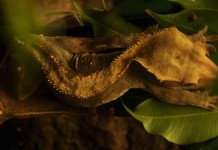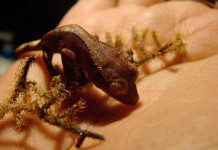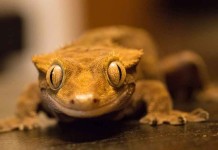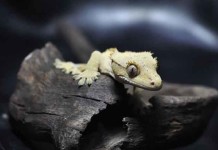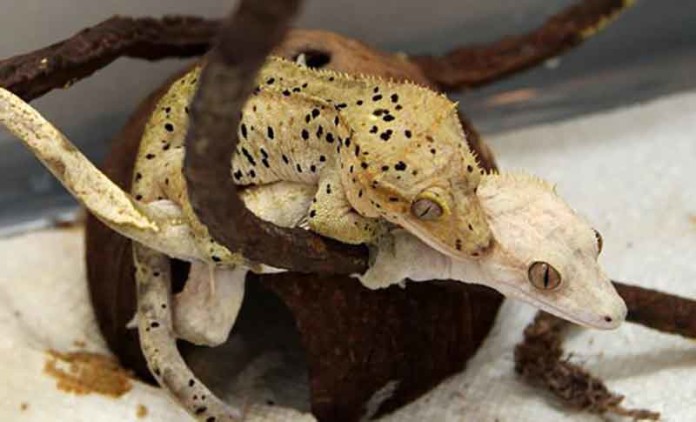The crested gecko bite is something that is rarely felt. They are a very friendly and docile reptile. It is not very often that this species of reptile will bite. There are a few instances, however, when they will bite you or each other. This will mainly occur with initial over-handling by you or among the crested geckos during mating.
Teeth
The crested gecko has very small teeth that are unable to chew. They swallow insects whole and eat soft fruits that are over-ripe or pureed. If they are fed crickets or other insects, they should not be larger than the space between their eyes and mouth to prevent choking.
Handling
When the crested gecko is not used to being handled, they may nip at you in the beginning. If they are over-aggressive, they may latch on quite strongly but this is rare. Handling the gecko should be kept to a minimum at first until they get used to it.
Mating
During mating, a male crested gecko will grab the female by her crests. Sometimes there will be bite marks on the crested geckos, but they generally will heal well if kept clean. This may seem rough, but it is perfectly natural.
Mother Protecting Eggs
A female crested gecko may bite after laying a clutch of eggs. She may feel protective and will not act kindly toward anything disturbing her eggs. The female crested gecko is not generally known for being overprotective of her eggs, but there is a slight chance of her becoming aggressive.
The Signs
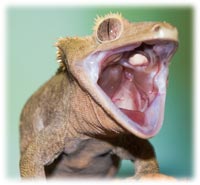 There are particular signs to look for when a crested gecko is angry or stressed. Their mouth will be gaping and their tail will be flicking and twitching. It will generally make clicking and squeaking noises as well. When the crested gecko becomes agitated like this, it is best to leave them alone.
There are particular signs to look for when a crested gecko is angry or stressed. Their mouth will be gaping and their tail will be flicking and twitching. It will generally make clicking and squeaking noises as well. When the crested gecko becomes agitated like this, it is best to leave them alone.
Overall, the crested gecko bite is something that is unknown to many as they are a very calm and docile species. The occasional nip will just let you know that it is time to put it down if you are handling it too much. Otherwise, biting during mating and the female protecting her eggs is natural.

